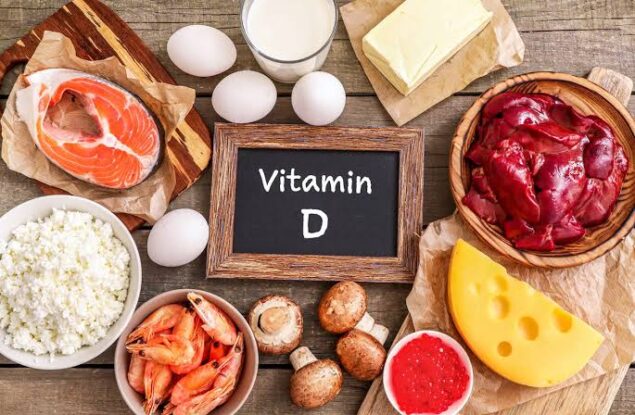Vitamin D deficiency can be harmful to your health. Low levels of vitamin D may lead to weak bones, reduced immunity, muscle weakness, and even mood swings. However, some symptoms of this deficiency appear only at night, which people often ignore. If these symptoms are recognised in time, the deficiency can be controlled before it becomes severe. Let’s take a look at the signs of vitamin D deficiency that may appear at night.
Night-Time Symptoms of Vitamin D Deficiency
Vitamin D helps regulate the body’s circadian rhythm and plays a role in the production of melatonin and serotonin. When vitamin D levels drop, it can disturb your sleep-wake cycle. This can result in symptoms like frequent awakening at night, difficulty falling asleep, or poor sleep quality.
In some cases, vitamin D deficiency may even lead to sleep disorders such as insomnia or sleep apnea. That’s why it’s important to protect your body from this deficiency. Although sunlight is the best natural source of vitamin D, some foods can also help you meet your daily requirements.
7 Vitamin D-Rich Foods
1. Fatty Fish
Fish like salmon, tuna, mackerel, and sardines are excellent sources of vitamin D.
100 grams of salmon can provide 400–500 IU of vitamin D, which is a significant part of your daily need. These fish also contain omega-3 fatty acids, which are good for heart health.
2. Egg Yolks
Egg yolks contain small amounts of vitamin D.
One egg yolk provides about 40 IU of vitamin D. While this isn’t much, eating eggs regularly can help support vitamin D levels.
3. Milk and Dairy Products
Cow’s milk and some dairy products contain vitamin D. Many companies also fortify milk with added vitamin D. A glass of fortified milk may provide around 100 IU. Yogurt and paneer (cottage cheese) are also good options.
4. Mushrooms
Mushrooms are the only plant-based natural source of vitamin D. Sun-dried mushrooms are especially rich in vitamin D. 100 grams can contain up to 2,000 IU, making them a great choice for vegetarians.
Also Read-: Having Vitamin D Deficiency? Here is How Long to Take Supplements
5. Fortified Foods
Many food products are fortified with vitamin D, such as:
- Orange juice (certain brands)
- Breakfast cereals and oatmeal
- Soy milk and almond milk
6. Cod Liver Oil
Cod liver oil is an excellent source of both vitamin D and omega-3 fatty acids. One tablespoon offers about 400–500 IU, covering 50–60% of daily needs.
7. Cheese
Some types of cheese like ricotta contain vitamin D, although in small amounts. Adding such cheese to a balanced diet can still be helpful.
Getting enough vitamin D daily, whether through sunlight or food, is essential for strong bones, good immunity, and restful sleep.

